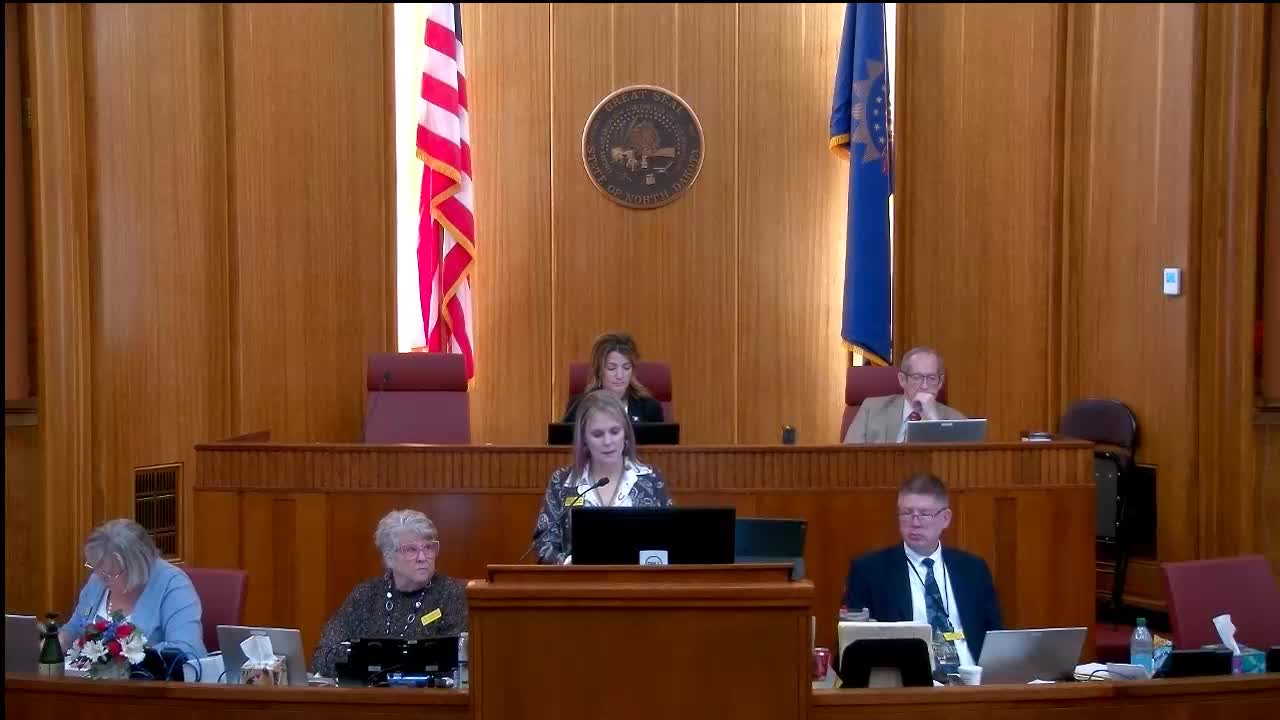Senate approves Office of Guardianship and Conservatorship after hours of debate
Get AI-powered insights, summaries, and transcripts
Subscribe
Summary
Senate Bill 20‑29, which would create an Office of Guardianship and Conservatorship (OGC) under the North Dakota Supreme Court, passed the Senate 24–23 after nearly two hours of floor debate.
Senate Bill 20‑29, which would create an Office of Guardianship and Conservatorship (OGC) under the North Dakota Supreme Court, passed the Senate 24–23 after nearly two hours of floor debate.
The bill’s sponsor, Senator Paulson, said the measure is intended to “address the lack of accountability and cohesiveness of guardianship programs and funding within our state.” The bill consolidates eight adult guardianship programs and multiple funding streams into a single OGC, charges the office with licensing professional guardians and conservators, centralizes complaint intake and investigations, and establishes administrative review and enforcement mechanisms.
Supporters said the change responds to documented abuses and the limits of the current patchwork system. Senator Paulson cited past federal criminal and civil cases involving a large guardianship provider and said the OGC will give the state authority to investigate misconduct and revoke licenses. “The OGC will allow us to do so,” he said on the floor.
Opponents — including Senators Lee, Rummel and Hogan — argued the OGC places regulatory and direct-service roles too close to the judicial branch and risks conflicts of interest because the courts appoint guardians and also would oversee the new office. Senator Lee said the proposal “borders on the offensive” to many professional guardians who currently provide services and warned the bill adds substantial staff and enforcement resources that may not be necessary. Senator Hogan and other critics urged caution about folding direct-service oversight into a court‑affiliated office.
The bill moves multiple programs and funding lines into a new continuing fund and prohibits a person from acting as guardian for three or more adults without a license. It requires licensing for anyone who advertises guardianship services, establishes a review board to conduct administrative hearings, and grants the attorney general responsibility for criminal investigations while the AG’s office would defend the OGC in civil suits.
Senators pressed sponsors on funding details. The floor record and committee materials show a variety of appropriation figures were discussed during committee work: the package in committee materials totaled roughly $15,246,400 after adjustments, with references to prior program totals including a $7.1 million PASST line and an earlier estimate near $18.3 million. The bill also limits payment to public guardians who exceed a caseload threshold and creates a new fund to hold transferred appropriations.
After extended questioning and several floor speeches for and against the bill, the Senate recorded a close final tally: 24 ayes, 23 nays. With the vote the measure will move to the House for consideration.
The debate was extensive and touched on objectors’ concern about judicial branch placement, the number and roles of new FTEs, the handling of existing appropriations in other budgets, and how investigative resources would be allocated between the OGC, the attorney general and BCI. Supporters said the change responds to recurring, documented failures under the existing fragmented oversight model and will strengthen protections for vulnerable wards.
If the House passes the bill as written, the OGC would take on licensing, complaint intake and centralized funding functions previously spread across multiple agencies.
